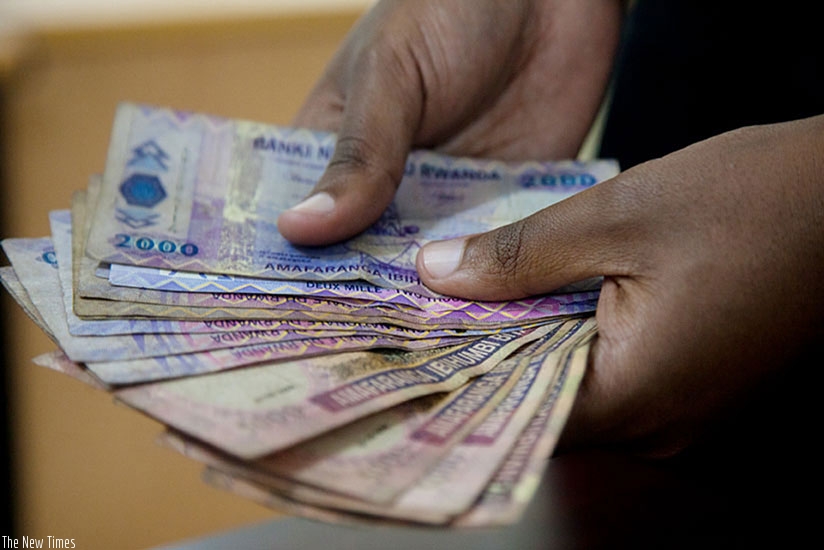the slight depreciation of the Rwandan franc against the US dollar recorded in the past few weeks was “expected and there is no cause for alarm,” according to the Rwanda forex dealers association.


The slight depreciation of the Rwandan franc against the US dollar recorded in the past few weeks was "expected and there is no cause for alarm,” according to the Rwanda forex dealers association.
Zephas Muhigi, the chairperson of the association, said there is always increased appetite for dollars from importers between the months of June and August, which leads to marginal depreciation of the local currency.
"Rwanda is still an import dependent country given the structure of the economy. Importers usually exert pressure on the local unit during the last part of the second quarter and first two months of quarter three as they make orders in preparation for Christmas and end-of-year period,” he explained.
However, there is no reason to worry as at all since the depreciation is "within the range” projected by the central bank, and is very manageable, he added.
The Rwanda franc has over the past two months lost about eight units against the US dollar from 837/843 selling and buying to 845/851 in bureaus across the city.
Some commercial banks are quoting the unit at 838/852.
Mihigo Placide, a dealer at Tweens Forex Bureau in Kimironko, attributed the recent depreciation to imports targeting the construction sector as many projects are currently ongoing in the country.
Last year, the local currency lost 9 per cent value to the greenback given its bullish trend against all major currencies in 2016.
According to the central bank, the unit lost 1.15 per cent as of June 22 this year compared to 4.6 per cent in the same period last year and BNR projects a 5 per cent depreciation rate (at most) this year.
The central bank attributes the encouraging trend to reduction in the trade deficit, saying it had partly facilitated the easing of exchange rate pressures. Rwanda’s trade deficit reduced by 22.6 per cent in the first five months of the 2017 to $580.6 million compared to $749.7 million recorded in the same period last year. The positive trend was attributed to an increase in formal exports by 37.2 per cent and a decrease in imports by 9.2 per cent.
Muhigi predicted that the stable trend in the forex market will continue, adding that demand for the greenback has gone down. He however, said the local unit could continue to experience some pressure from the dollar due to the continued appreciation of the US dollar as well as other factors in the global economy. The euro has also gained on the franc and is now being quoted at 950 from 890 previously. Speculators fixed
Muhigi said the market has been "behaving normally” because speculation has been handled creating a level playing ground that has helped stabilise the forex market. In June 2015, the franc hit a new low of 700 on what the central bank blamed of speculators and some businesses that were quoting their prices in dollars.
BNR subsequently outlaw the practice (dollarisation of economy) to ease demand it was creating and affecting the market, and also announced stringent measures against speculators.
Challenges persist
The forex dealers’ association chief said the black market is one of the biggest challenges they face, but adds that the group is working with BNR to stem the vice.
He said the central bank has signed a memorandum of understanding with local governments and the Police to ensure they crackdown on suspected black market dealers "because they are distorting the market”.
The official urged the public to use licensed forex bureaus to avoid any eventualities like loss of money or being cheated. He says unlicensed dealers are prevalent at Rusizi and Rubavu border posts.
He added that though the central bank banned the quoting of prices for goods and services in dollars, some businesses have not yet abided by the regulation.
"This practice is eating into our market and the regulator should step in to address the problem,” Muhigi said.


